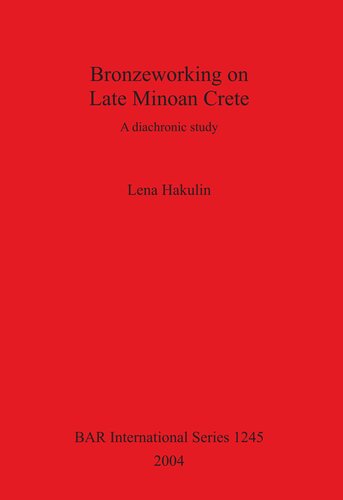

Most ebook files are in PDF format, so you can easily read them using various software such as Foxit Reader or directly on the Google Chrome browser.
Some ebook files are released by publishers in other formats such as .awz, .mobi, .epub, .fb2, etc. You may need to install specific software to read these formats on mobile/PC, such as Calibre.
Please read the tutorial at this link: https://ebookbell.com/faq
We offer FREE conversion to the popular formats you request; however, this may take some time. Therefore, right after payment, please email us, and we will try to provide the service as quickly as possible.
For some exceptional file formats or broken links (if any), please refrain from opening any disputes. Instead, email us first, and we will try to assist within a maximum of 6 hours.
EbookBell Team

0.0
0 reviewsSo far no holistic study and synthesis of Late Minoan bronze-working has been published. This study is the first attempt to collect all available data and analyze the whole bronze-working process from raw materials to finished objects and present a comprehensive view of its development from the Neopalatial to the Postpalatial period. The aims of this study are (1) to collect all published data on bronze objects, evidence for raw materials and bronze workshops as well as scientific analyses related to Late Minoan bronze-working, and store them in codified databases; (2) to analyze this information and identify differences in the bronze object assemblages, selected object types, the finding contexts, the metalworking techniques, the alloy composition and the availability of copper between the Neopalatial, the Mycenaean Knossos and the Postpalatial periods; (3) to identify the causes of possible changes and differences between these periods; (4) to present an overview of the bronze industry on Crete and its development during the Late Bronze Age. Chronologically the study is centred on the Late Bronze Age, and metallurgically and geographically the scope of the research is limited to copper-based objects, archaeological evidence for their manufacturing and copper raw material found on Crete, as well as scientific analyses related to them.